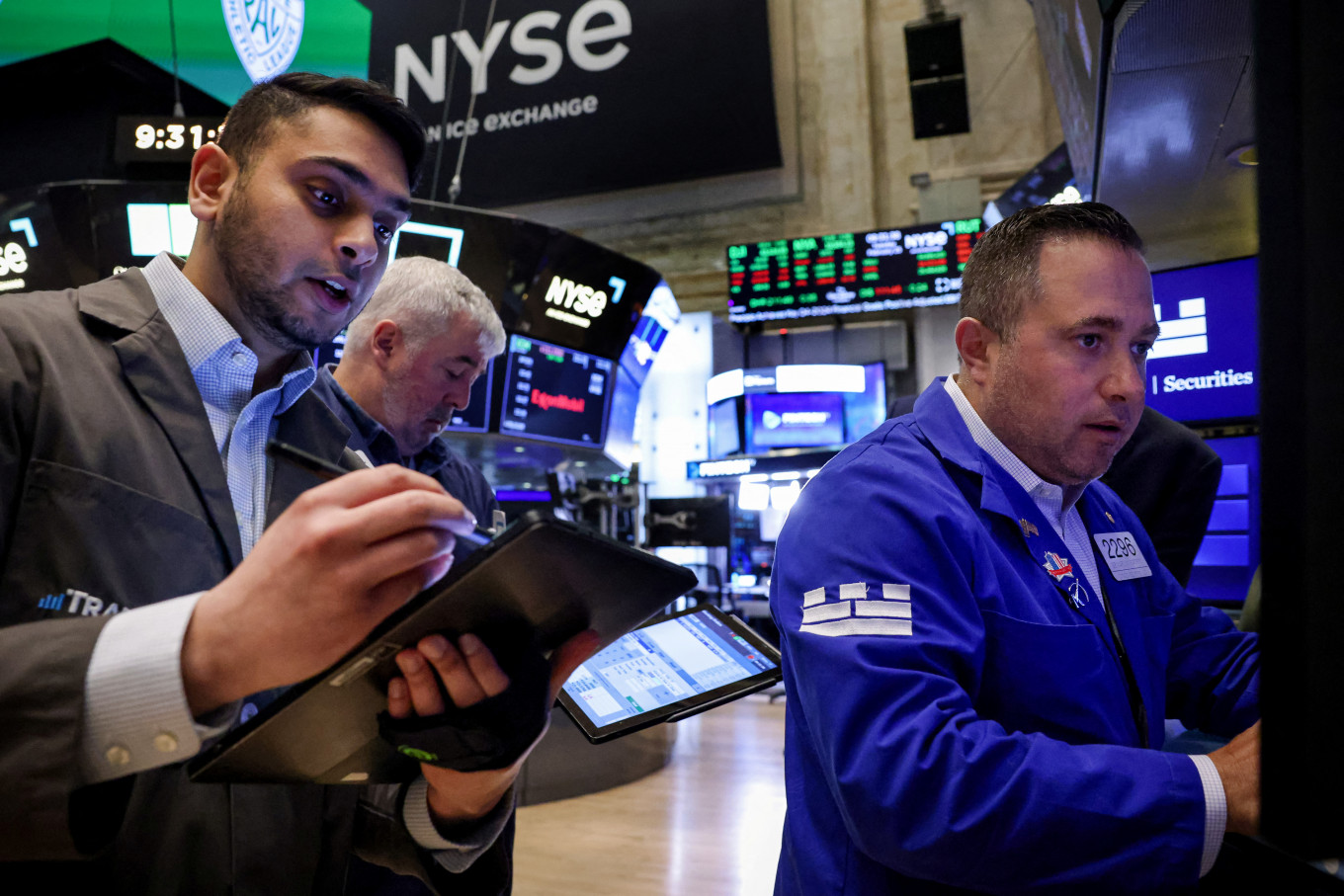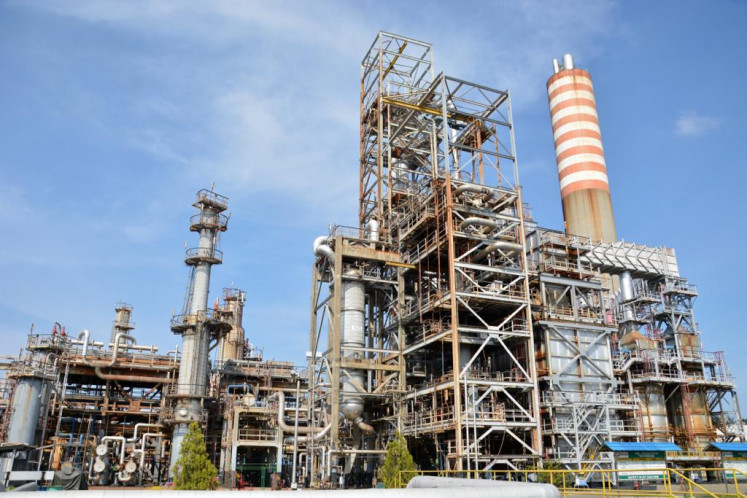Popular Reads
Top Results
Can't find what you're looking for?
View all search resultsPopular Reads
Top Results
Can't find what you're looking for?
View all search resultsStocks stabilise, gold hits record before Trump tariff reveal
Change text size
Gift Premium Articles
to Anyone
A
sian equities rose on Tuesday following Wall Street's overnight gains, while gold hit an all-time peak and Treasury yields fell as markets awaited details of US President Donald Trump's reciprocal tariffs.
The Japanese yen strengthened as traditional haven assets drew demand. Meanwhile, the risk-sensitive Australian dollar was under pressure after a soft reading of local retail sales, ahead of a Reserve Bank of Australia policy decision later in the day.
Regional stocks found some respite on the first day of April after being battered in March by worries that Trump's trade war could trigger stagflation or even a US recession.
Investors are nervously awaiting April 2, a day Trump has dubbed "Liberation Day", when he has promised to unveil a massive reciprocal tariff plan.
Japan's Nikkei rose 0.7 percent, South Korea's KOSPI advanced 1.4 percent and Taiwan's equity benchmark climbed 1.7 percent, following steep drops on Monday.
Hong Kong's Hang Seng gained 1 percent, while mainland Chinese blue chips edged 0.1 percent higher.
The US S&P 500 gained 0.55 percent on Monday, snapping a three-day losing run, but futures pointed 0.54 percent lower.
"It is possible that a significant portion of last night's rebound in the key [Wall Street] indices was attributable to month-end and quarter-end rebalancing flows, as well as short covering ahead of Trump's Liberation Day, amid considerable uncertainty about what comes next," said Tony Sycamore, an analyst at IG.
"US equity markets are priced for a slowdown in growth and earnings. However, they are not priced for a recession, and if the US economy enters recession, US stock markets could easily fall by another 10 percent."
Bullion powered to a record high for a fourth straight session, hitting US$3,139.78 per ounce.
"On top of general risk aversion, investors are increasing allocation to gold with the Trump administration's trade policy threatening the dollar's special reserve status," said Kyle Rodda, senior financial markets analyst at Capital.com.
"The fundamental backdrop remains strong for gold."
Demand for the safety of Treasuries sent yields lower on Tuesday, with those on benchmark 10-year notes sinking some 4 basis points to 4.2072 percent.
That put pressure on the dollar, which slipped 0.19 percent to 149.70 yen. The euro added 0.08 percent to $1.0825.
However, the dollar edged up against the currencies of some of its top trading partners, adding 0.08 percent to C$1.4398 and rising by the same margin to 20.4751 Mexican pesos.
The Aussie slipped 0.18 percent to $0.6238.
The RBA is widely expected to keep interest rates steady, but with conditions falling into place for a cut, traders will be looking for hints that a reduction could be coming in May.
Bitcoin was steady at around $82,708.
Oil prices dipped slightly from a five-week high as traders weighed the impact of a trade war on global growth. Brent eased 0.1 percent to $74.67 a barrel, while US West Texas Intermediate crude fell by the same margin to $71.37.
Both crude contracts had jumped about 2 percent on Monday after Trump threatened secondary tariffs on Russian crude and on Iran. He also threatened Iran with bombing if Tehran did not come to an agreement with Washington over its nuclear program.











